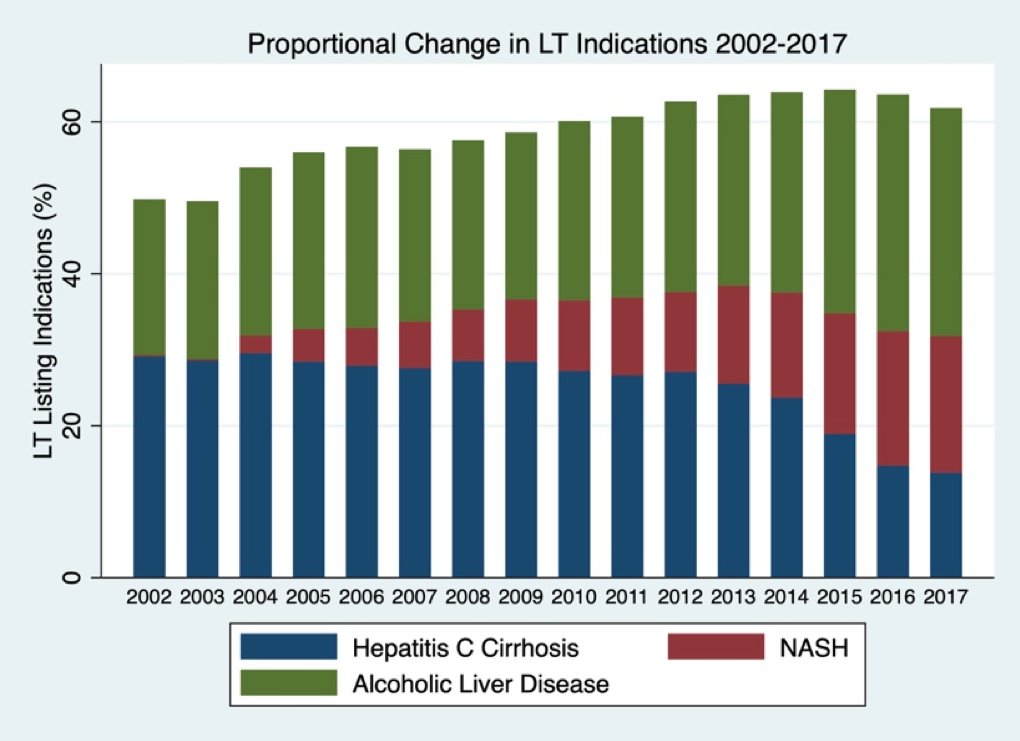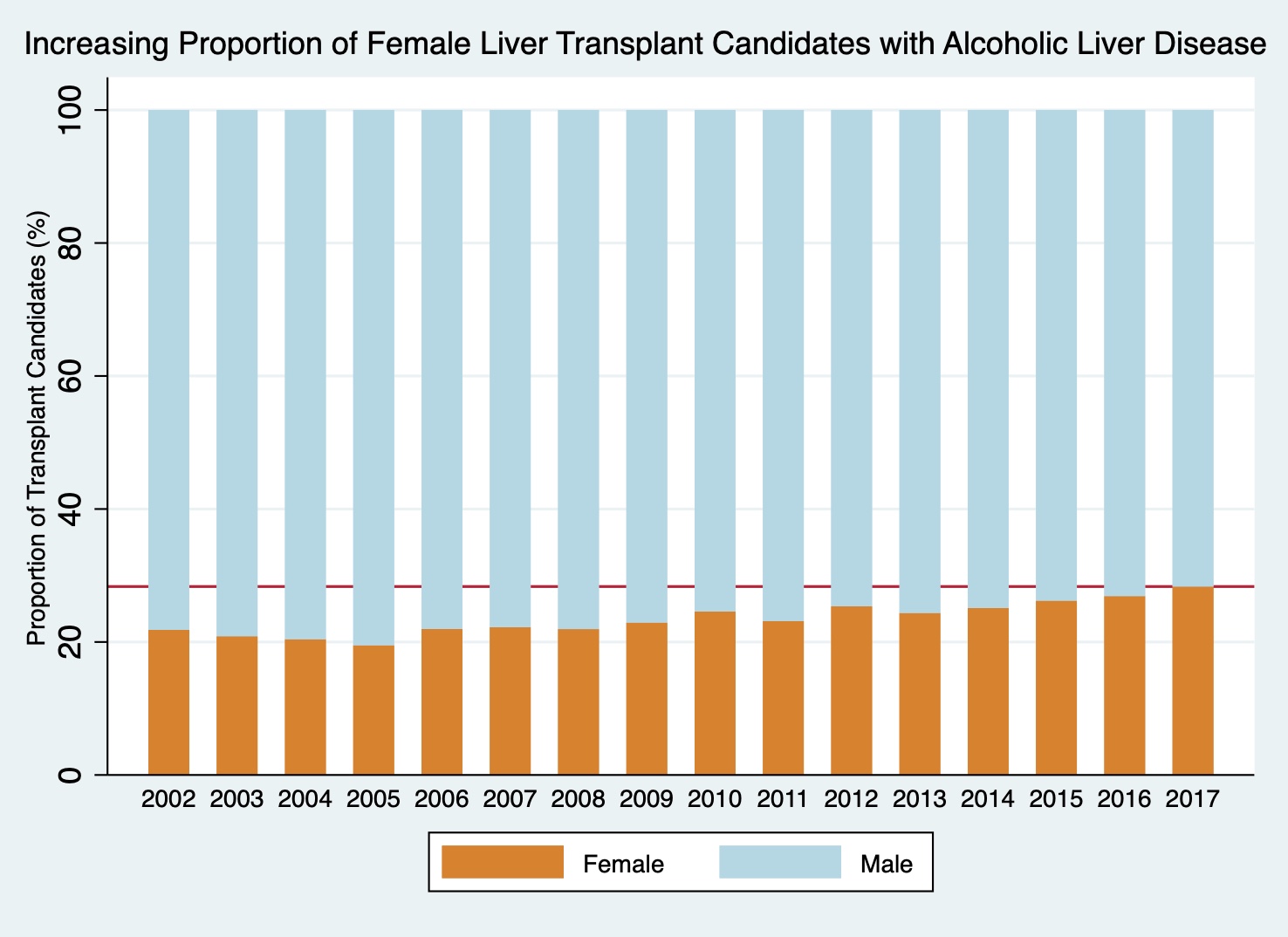Increasing Prevalence and Diversity: Alcoholic Liver Disease in Liver Transplant Candidates
Baylor College of Medicine, Houston, TX
Meeting: 2020 American Transplant Congress
Abstract number: 55
Keywords: Alcohol, Liver transplantation
Session Information
Session Name: Liver: Hepatobiliary Surgery and Liver Transplant Potpourri
Session Type: Oral Abstract Session
Date: Saturday, May 30, 2020
Session Time: 3:15pm-4:45pm
 Presentation Time: 3:27pm-3:39pm
Presentation Time: 3:27pm-3:39pm
Location: Virtual
*Purpose: Increasing global alcohol use translates to a marked growth in alcoholic liver disease (ALD). ALD patients comprise a larger proportion of listings for liver transplant (LT) than ever in the past.
*Methods: This study examined the OPTN/UNOS transplantation waitlist STAR files from March 2002 to December 2017. All adults listed for LT were included (n=135,956). Yearly numerical and demographic trends in ALD-related listings were explored.
*Results: Alcoholic cirrhosis has increased as an LT indication from 4.3% of the LT candidates in 2002 to 8.3% in 2017. While alcoholic hepatitis accounts for only 0.64% of listings in 2017, this has doubled since 2004. The increase in ALD-related listings is observed across all 11 OPTN regions, reported at twice the rate in Region 2. The proportion of women listed for ALD is increasing (21.8% in 2002 vs. 28.34% in 2017). Furthermore, proportionally fewer ALD listings are White patients (79.42% in 2002 vs. 75.66% in 2017). While the proportion of Hispanic LT candidates increased (12.87% vs. 15.94% p=0.00), proportionally, Hispanic ALD patients remained constant (15.68%, 15.84%). The LT waitlist population is growing and changing.
*Conclusions: This study describes a rising prevalence of ALD among LT candidates and a description of shifting demographics that include more woman non-white LT candidates.
To cite this abstract in AMA style:
Joshi M, Godfrey EL, Goss JA, Rana A. Increasing Prevalence and Diversity: Alcoholic Liver Disease in Liver Transplant Candidates [abstract]. Am J Transplant. 2020; 20 (suppl 3). https://atcmeetingabstracts.com/abstract/increasing-prevalence-and-diversity-alcoholic-liver-disease-in-liver-transplant-candidates/. Accessed February 9, 2026.« Back to 2020 American Transplant Congress


